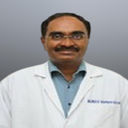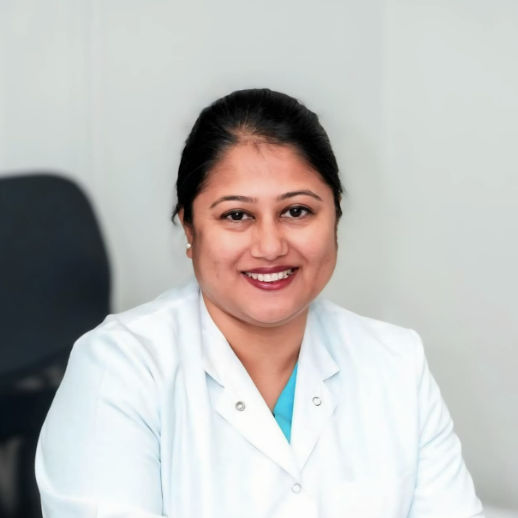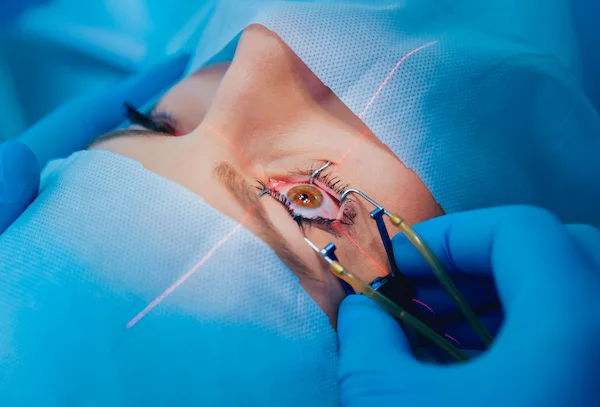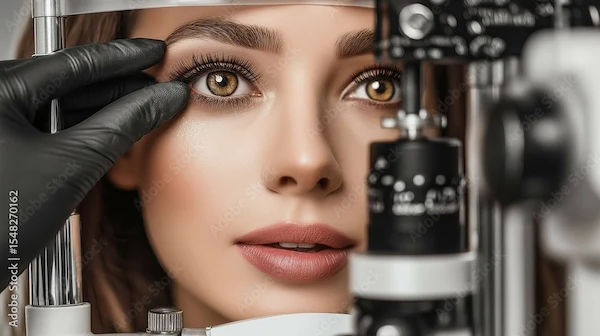What Is Considered Heavy Lifting After Cataract Surgery?
Wondering what counts as heavy lifting after cataract surgery? Learn why it matters, what weight limits to follow, and tips for a safe recovery.

Written by Dr.Sonia Bhatt
Last updated on 13th Jan, 2026
.webp?tr=q-80,f-webp,w-350,dpr-2,c-at_max 700w)
Introduction
If you've recently undergone cataract surgery, you might be wondering about the dos and don’ts during your recovery. One of the most common concerns is understanding what qualifies as heavy lifting and why it's important to avoid it. This article will guide you through everything you need to know in simple, easy-to-understand terms.
Why Should You Avoid Heavy Lifting After Cataract Surgery?
Cataract surgery is a delicate procedure where your eye’s cloudy lens is replaced with an artificial one. While the surgery itself is quick and safe, your eye needs time to heal properly. Heavy lifting can increase pressure inside your eye, which may lead to complications such as:
Increased risk of bleeding
Displacement of the new lens
Delayed healing
Swelling or inflammation
To ensure a smooth recovery, your doctor will advise you to avoid strenuous activities, especially lifting heavy objects.
Consult Top Specialists for Personalised Health Advice
What Is Considered Heavy Lifting?
After cataract surgery, most doctors recommend avoiding lifting anything heavier than 4.5-7 kg for at least 2-4 weeks. This includes:
Grocery bags, especially full ones
Small children or pets
Luggage or backpacks
Heavy household items like large pots, books, or tools
Exercise weights like dumbbells, kettlebells, etc.
Even bending over to pick up something light can strain your eyes, so it’s best to avoid sudden movements.
How Long Should You Avoid Heavy Lifting?
The exact duration depends on your healing progress, but most patients are advised to:
First 1-2 weeks: Avoid lifting anything over 2-5 kg.
Weeks 3-4: Gradually increase activity but avoid lifting more than 7 kg.
After 4 weeks: Consult your doctor before resuming heavy lifting or intense workouts.
Always follow your surgeon’s specific instructions, as recovery varies from person to person.
Tips for a Safe Recovery
To protect your eyes and ensure a smooth healing process, follow these tips:
Use proper posture – If you must lift something light, bend at the knees instead of the waist to reduce eye pressure.
Ask for help – Have family or friends assist with groceries, laundry, or other heavy tasks.
Avoid straining – Skip activities that require pushing, pulling, or sudden movements.
Wear your eye shield – Especially while sleeping to prevent accidental rubbing.
Follow medication instructions – Use prescribed eye drops to prevent infection and inflammation.
When Can You Resume Normal Activities?
Most people can return to light daily tasks within a few days, but:
Driving: Wait until your doctor confirms your vision is stable.
Exercise: Light walking is fine, but avoid heavy workouts for at least a month.
Swimming & Hot Tubs: Avoid for 2-4 weeks to prevent infection.
If you experience pain, redness, or vision changes, contact your doctor immediately.
If you have concerns about your recovery or need personalised guidance, Apollo 24|7 offers easy online consultations with eye specialists. You can also book follow-up tests to ensure your eyes are healing well.
Final Thoughts
Recovering well after cataract surgery means following a few simple precautions, and avoiding heavy lifting is one of the most important. Give your eye the time it needs to heal, and always check with your doctor before returning to more demanding activities.
If you need help or would like personal advice for a safe recovery, you can book a consultation with an Apollo 24|7 eye specialist for trusted guidance at every step.
Consult Top Eye Specialists
Consult Top Specialists for Personalised Health Advice
Dr. Padmini S
Ophthalmologist
4 Years • MBBS,MS
Bengaluru
Apollo Medical Center, Marathahalli, Bengaluru

Dr. Karan Paswan
Ophthalmologist
7 Years • MBBS,MS (Ophthalmology)
Kolkata
VDC Clinic, Kolkata

Dr. K Sreekumar Reddy
Ophthalmologist
26 Years • MBBS MD (Ophthalmology) EGESTOLP
Hyderabad
Apollo Hospitals Jubilee Hills, Hyderabad
(50+ Patients)
Dr Kanse Vaibhav
Ophthalmologist
10 Years • MBBS, DO, MS, DNB
Pune
Apollo Clinic, Nigdi, Pune

Dr. Zennat Tajmin Shah
Ophthalmologist
24 Years • MBBS,DNB (Ophthalmology)
Kolkata
Titanium Eye Care, Kolkata
Consult Top Eye Specialists
Dr. Padmini S
Ophthalmologist
4 Years • MBBS,MS
Bengaluru
Apollo Medical Center, Marathahalli, Bengaluru

Dr. Karan Paswan
Ophthalmologist
7 Years • MBBS,MS (Ophthalmology)
Kolkata
VDC Clinic, Kolkata

Dr. K Sreekumar Reddy
Ophthalmologist
26 Years • MBBS MD (Ophthalmology) EGESTOLP
Hyderabad
Apollo Hospitals Jubilee Hills, Hyderabad
(50+ Patients)
Dr Kanse Vaibhav
Ophthalmologist
10 Years • MBBS, DO, MS, DNB
Pune
Apollo Clinic, Nigdi, Pune

Dr. Zennat Tajmin Shah
Ophthalmologist
24 Years • MBBS,DNB (Ophthalmology)
Kolkata
Titanium Eye Care, Kolkata



.webp)
